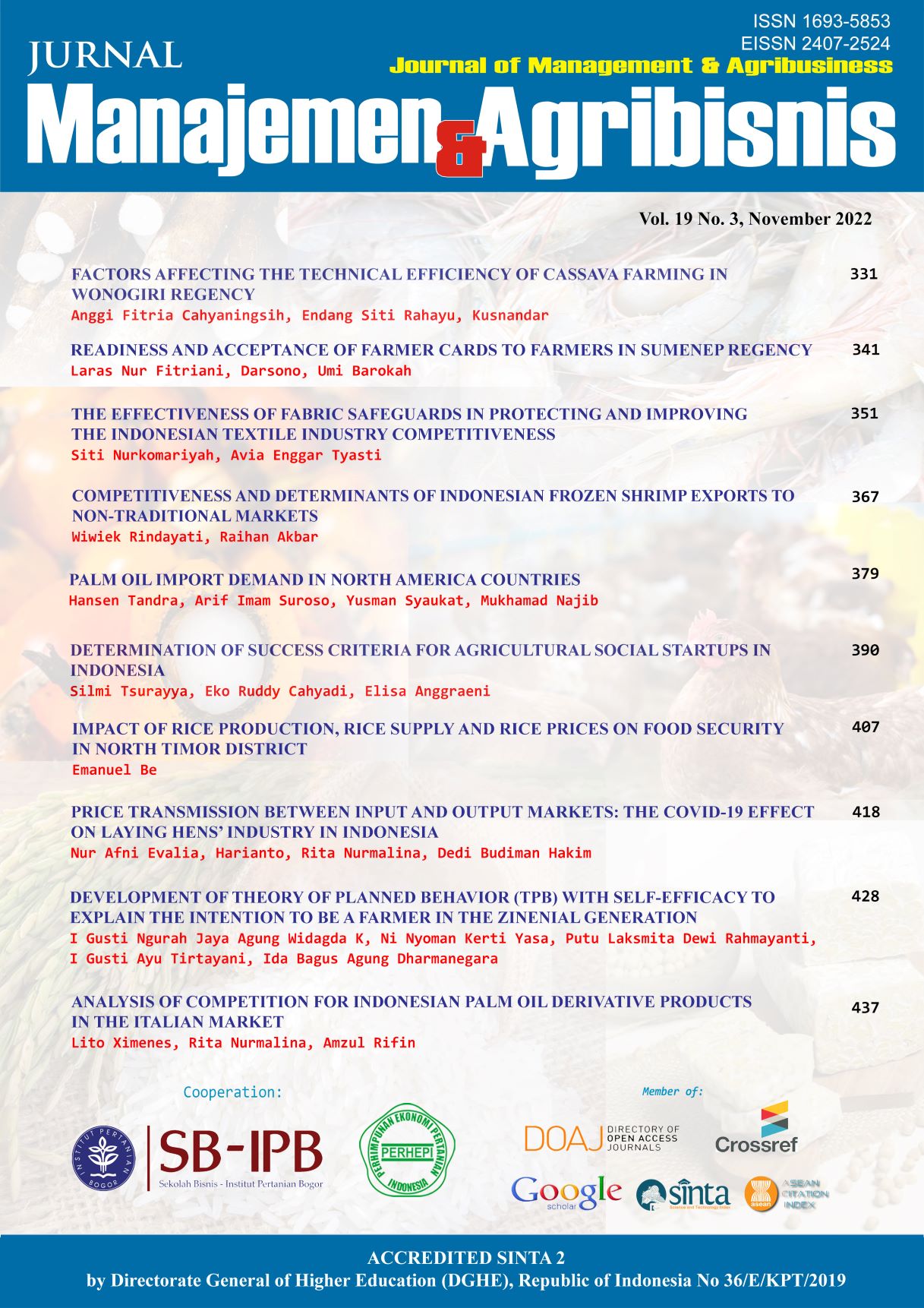Consumer Perception of Charolais Mixed Breed (Lembu Sado) Meat Consumption in Terengganu, Malaysia
Abstract
Charolais mixed breed, also known as Lembu Sado locally, is a quite new cattle breed in Malaysia. Lembu Sado usually been raised in certain states in Malaysia such as Terengganu, Kelantan, Pahang, and Johor. Consumer perceptions on Lembu Sado meat for consumption are being measures since Lembu sado meat become relevant as one of meat beef. This study aims to identify the level of consumer perception on Lembu Sado meat consumption and to determine the significant factor of consumer perception that influence Lembu Sado meat consumption. A Google form survey was distributed to 50 respondents across Terengganu, to test the hypotheses whether the perception factors such as psychological, sensory, and marketing factors had influenced consumer consumption of Lembu Sado meat. Descriptive analysis and factor analysis were employed in this study. The results indicated that leanness of meat, health, ethnicity and advertisement are the main factors that influence the consumption of Lembu Sado meat. The findings may help consumer to decide which variables they should consider when purchasing Lembu Sado meat and also give them a clear view on what to expect when consuming Lembu Sado meat in the future.
Keywords: consumer perception, lembu sado, factor analysis, Terengganu
Authors
Authors who publish with this journal agree to the following terms:
- Authors retain copyright and grant the journal right of first publication with the work simultaneously licensed under a Creative Commons Attribution License that allows others to share the work with an acknowledgement of the work's authorship and initial publication in this journal.
- Authors are able to enter into separate, additional contractual arrangements for the non-exclusive distribution of the journal's published version of the work (e.g., post it to an institutional repository or publish it in a book), with an acknowledgement of its initial publication in this journal.
- Authors are permitted and encouraged to post their work online (e.g., in institutional repositories or on their website) prior to and during the submission process, as it can lead to productive exchanges, as well as earlier and greater citation of published work (See The Effect of Open Access).

